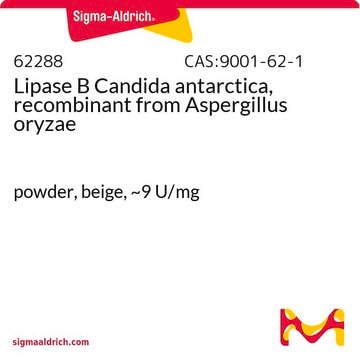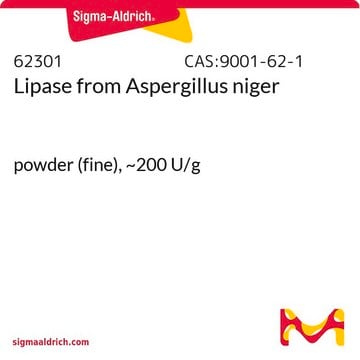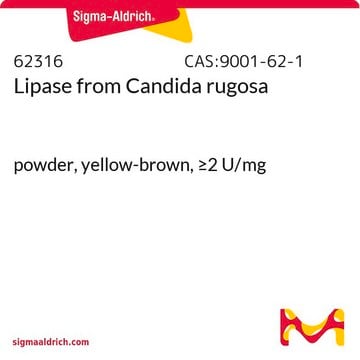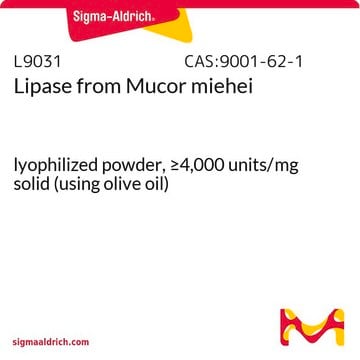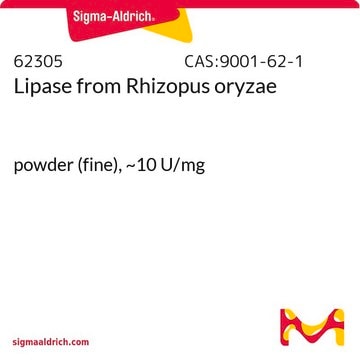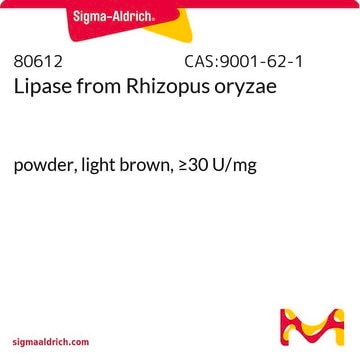L8525
Lipase from Candida rugosa
lyophilized powder, ≥40,000 units/mg protein
Synonym(s):
Triacylglycerol acylhydrolase, Triacylglycerol lipase
About This Item
Recommended Products
biological source
fungus (Candida rugosa)
Quality Level
form
lyophilized powder
specific activity
≥40,000 units/mg protein
composition
Protein, ≥4.0%
foreign activity
α-amylase ≤0.05 unit/mg solid
protease ≤0.001 units/mg solid
storage temp.
2-8°C
InChI
1S/C11H9N3O2.Na/c15-8-4-5-9(10(16)7-8)13-14-11-3-1-2-6-12-11;/h1-7,16H,(H,12,14);/q;+1/b13-9-;
InChI key
QWZUIMCIEOCSJF-CHHCPSLASA-N
Looking for similar products? Visit Product Comparison Guide
General description
Application
- in the hydrolysis of loaded polycaprolactone–20% tricalcium phosphate (PCL–TCP) composites
- in adsorption of proteins in emulsan/alginate beads and in enzyme assays
- to catalyse methanolysis and hydrolysis reactions
Biochem/physiol Actions
Lipases catalyze the hydrolysis of triacylglycerols into glycerol and free fatty acids.
Unit Definition
Analysis Note
Signal Word
Danger
Hazard Statements
Precautionary Statements
Hazard Classifications
Resp. Sens. 1
Storage Class Code
11 - Combustible Solids
WGK
WGK 1
Flash Point(F)
Not applicable
Flash Point(C)
Not applicable
Personal Protective Equipment
Certificates of Analysis (COA)
Search for Certificates of Analysis (COA) by entering the products Lot/Batch Number. Lot and Batch Numbers can be found on a product’s label following the words ‘Lot’ or ‘Batch’.
Already Own This Product?
Find documentation for the products that you have recently purchased in the Document Library.
Customers Also Viewed
Our team of scientists has experience in all areas of research including Life Science, Material Science, Chemical Synthesis, Chromatography, Analytical and many others.
Contact Technical Service


